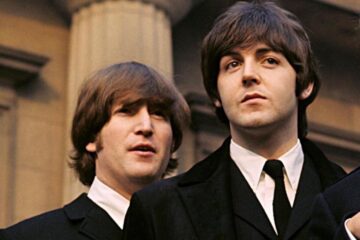Reggae is a prolific genre of music, and throughout the 1970s, when Bob Marley rose to popularity, it became more and more widespread. As is always the case when something becomes popular, other artists then started to try their hand at it as well, including The Beatles.
The idea of English artists doing reggae is enough to make anyone nervous. We never needed to hear the cover of Elton John’s ‘I Shot the Sheriff’, it still gives music fans nightmares. Any other artist who had the inkling to try reggae was met, quite rightly, with trepidation, but that didn’t stop them from trying.
It won’t come as a surprise to a lot of Beatles fans that the Fab Four had a go at reggae. The band had already cut their teeth with the genre in 1964 when they released the song ‘I Call Your Name’, a track where they switched into a ska beat, more reminiscent of reggae music than anything else that the Beatles were putting out at the time.
Island sounds can also be heard on ‘Ob-La-Di, Ob-La-Da’ on The White Album. The beat is more rocksteady and, as such, is reminiscent of reggae sounds. It’s pretty annoying; despite being a favourite for many fans, it’s hardly one of the band’s best tunes. Even John Lennon himself confessed recording the song bugged him to no end.
The mindset of Lennon and McCartney after the Beatles broke up is hard to comprehend. For someone like George Harrison, his songs had been pushed to the back of the Beatles priority list throughout their career, as labels wanted the band to continue to have that Lennon and McCartney sound. As such, Harrison could start finishing the songs he had started years ago, whereas Lennon and McCartney would likely feel a bit lost.
The band’s break-up coincided with Marley going more international with his reggae sounds. Both songwriters decided to try the genre in light of its newfound popularity. McCartney tried it on the album On Wild Life, the first LP released by his band, Wings, where reggae could be heard on the catchy single ‘Love Is Strange’. Lennon also did it on his album Mind Games, specifically the title track. When he says, “Love is the answer. And you know that for sure,” the instrumentation reflects reggae.
Lennon acknowledged in an article, “The middle eight is reggae. Trying to explain to American musicians what reggae was in 1973 was pretty hard, but it’s basically a reggae middle eight if you listen to it.”
Both finished products are fine, but by no means are the musician’s best work. They are likely the by-product of two well-established musicians trying to re-establish themselves and looking all over the globe for the best way to do it. They’re worth a listen, but there’s a reason the two are still best known for The Beatles.




